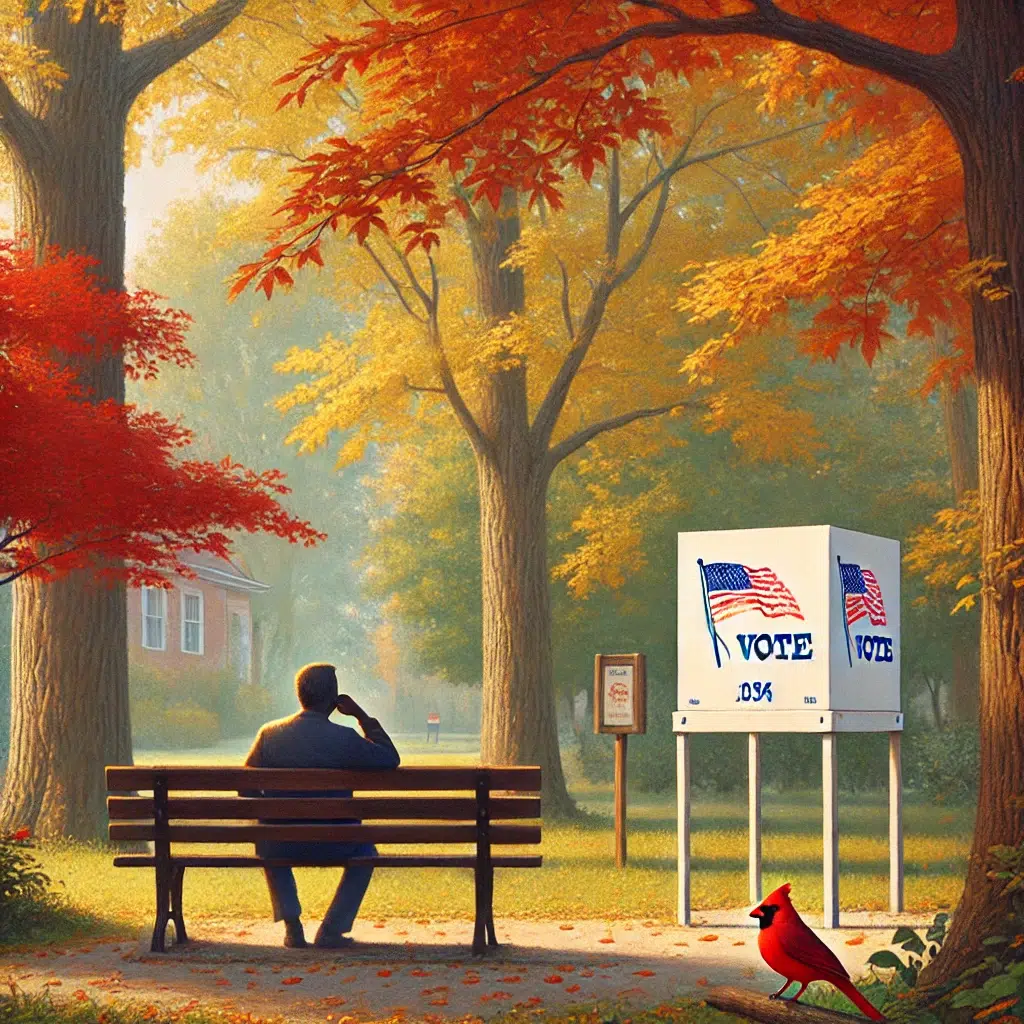

The Mental Effects of Election Season: Navigating Stress and Uncertainty
- News
- October 22, 2024
The Mental Effects of Election Season: Navigating Stress and Uncertainty
Election season can bring a whirlwind of emotions—excitement, anxiety, and sometimes even fear. While participating in the democratic process is vital, the mental strain that accompanies elections is often overlooked. With increased media coverage, divisive debates, and social media noise, many people find this time particularly stressful. At Cedar Tree Counseling, we recognize the unique mental health challenges that arise during election season and are here to support you.
The Impact of Election Season on Mental Health
- Increased Anxiety and Stress
The constant stream of political discussions, predictions, and uncertainties surrounding elections can lead to heightened anxiety. This is especially true for individuals who feel strongly about certain issues or outcomes. Research has shown that election stress is a real phenomenon, with 68% of Americans reporting that the 2020 election was a significant source of stress, according to a survey by the American Psychological Association (APA). Constant media consumption can fuel this stress, making it harder to disconnect and relax. - Fear and Uncertainty About the Future
Elections often represent significant changes, whether in policies, laws, or social norms. The fear of an outcome that doesn’t align with one’s values or expectations can create a sense of dread and uncertainty. Studies show that political uncertainty can have profound psychological effects, especially when tied to concerns about personal or community well-being. - Social Media Overload
Social media platforms amplify election-related content, including heated debates, political ads, and misinformation. This constant barrage of information can make it difficult to escape election-related stress. A study by the Pew Research Center found that about 55% of social media users feel “worn out” by political content during election seasons. - Polarization and Relationship Strain
Political polarization has led to strained relationships between friends, families, and coworkers. Disagreements about political beliefs can heighten emotional stress and lead to feelings of isolation or frustration. In extreme cases, these conflicts may contribute to social withdrawal and feelings of disconnection. - Emotional Exhaustion and Burnout
The continuous coverage of election campaigns, debates, and political news can lead to emotional exhaustion, making it difficult to stay engaged or motivated. This state of burnout happens when people become mentally and emotionally drained from the constant exposure to political discussions, leading to feelings of fatigue and detachment. Many individuals may start to feel indifferent or apathetic toward the election, which can affect their daily lives and overall well-being. Election burnout is a recognized phenomenon and can disrupt focus, productivity, and emotional stability.
Coping Strategies to Manage Election Stress
- Set Boundaries with Media Consumption
Limiting exposure to election-related media is key to managing stress. The APA recommends setting specific times to check the news, rather than constantly monitoring updates throughout the day. This can help reduce anxiety and prevent feelings of being overwhelmed by information. - Practice Mindfulness and Self-Care
Engaging in mindfulness activities such as meditation, deep breathing, and exercise can help alleviate election-related stress. Mindfulness has been shown to reduce symptoms of anxiety and depression, particularly in high-stress environments. Regular self-care practices can help ground you during emotionally charged times. - Engage in Open, Respectful Conversations
While it’s natural to want to discuss politics with friends or family, it’s essential to engage in these conversations respectfully. Research shows that when people feel heard and understood, their stress levels decrease, even if they don’t agree with others’ viewpoints. Setting clear boundaries around difficult conversations can also help prevent unnecessary conflict. - Focus on What You Can Control
During election season, it’s easy to feel powerless, but focusing on what you can control can help reduce feelings of helplessness. Taking proactive steps, such as voting or supporting causes you care about, can give you a sense of agency and purpose. - Seek Professional Support
If election stress feels overwhelming, seeking professional support from a therapist can provide valuable coping strategies. Therapy can help you process your emotions, manage stress, and maintain perspective during tense times. A study published in The Journal of Nervous and Mental Disease found that therapeutic interventions were effective in reducing election-related stress and anxiety.
How Cedar Tree Counseling Can Help
At Cedar Tree Counseling, we understand the mental strain that comes with election season. Whether you’re dealing with anxiety, fear of the future, or relationship conflicts due to political differences, our experienced therapists are here to support you. We offer tailored counseling services to help you manage stress, process emotions, and find peace amidst the chaos.
If you’re feeling overwhelmed by the current political climate, reach out to us at Cedar Tree Counseling of Oklahoma. Together, we can develop a plan that helps you find balance, peace, and emotional resilience during election season.
Contact us today to schedule an appointment and take the first step toward improving your mental well-being.
Sources:
- American Psychological Association (APA). “Stress in America 2020: Election Stress Disorder.” APA, 2020.
- Pietromonaco, Paula R., and Casey J. Powers. “Political Uncertainty and Mental Health.” Social Psychology Quarterly, vol. 83, no. 1, 2020, pp. 25-50.
- Pew Research Center. “55% of U.S. Social Media Users Say They Feel ‘Worn Out’ by Political Posts.” Pew Research Center, 2020.
- Smith, Christian. “Election-Related Stress and Relationship Strain.” Journal of Political Psychology, vol. 24, no. 2, 2021, pp. 150-160.
- American Psychological Association (APA). “How to Manage Election Stress.” APA, 2020.
- Baer, Ruth A. “Mindfulness-Based Stress Reduction and Election Stress.” Journal of Behavioral Medicine, vol. 47, no. 3, 2020, pp. 220-230.
- Palus, Nancy. “Feeling Powerless? How to Cope with Election Anxiety.” Psychology Today, 2020.
- Gonzalez, Jeanette. “Managing Election Burnout: Signs and Strategies.” The Journal of Nervous and Mental Disease, vol. 208, no. 12, 2020, pp. 900-906.
